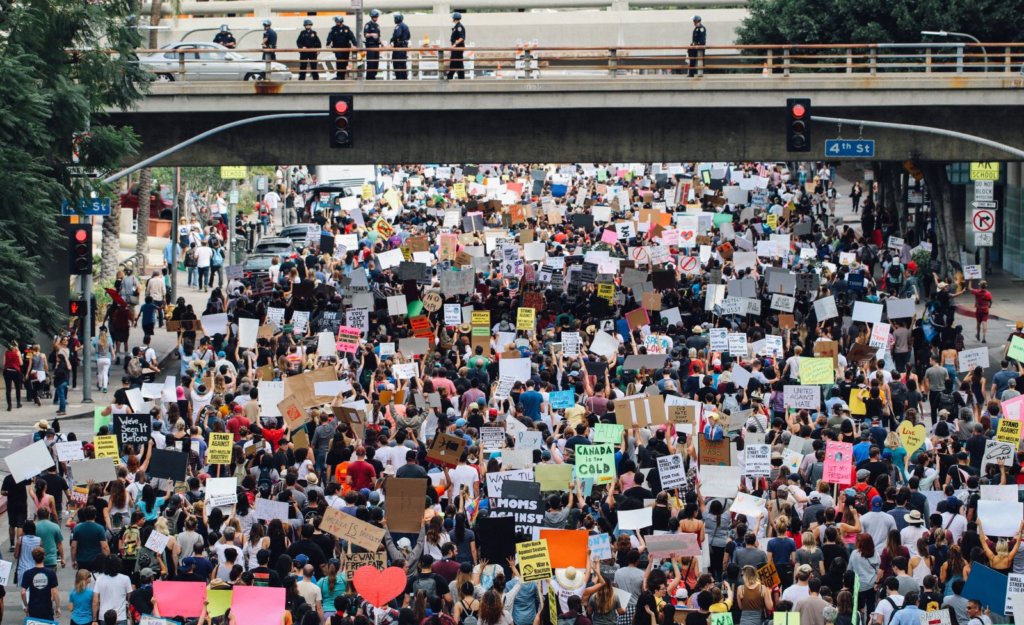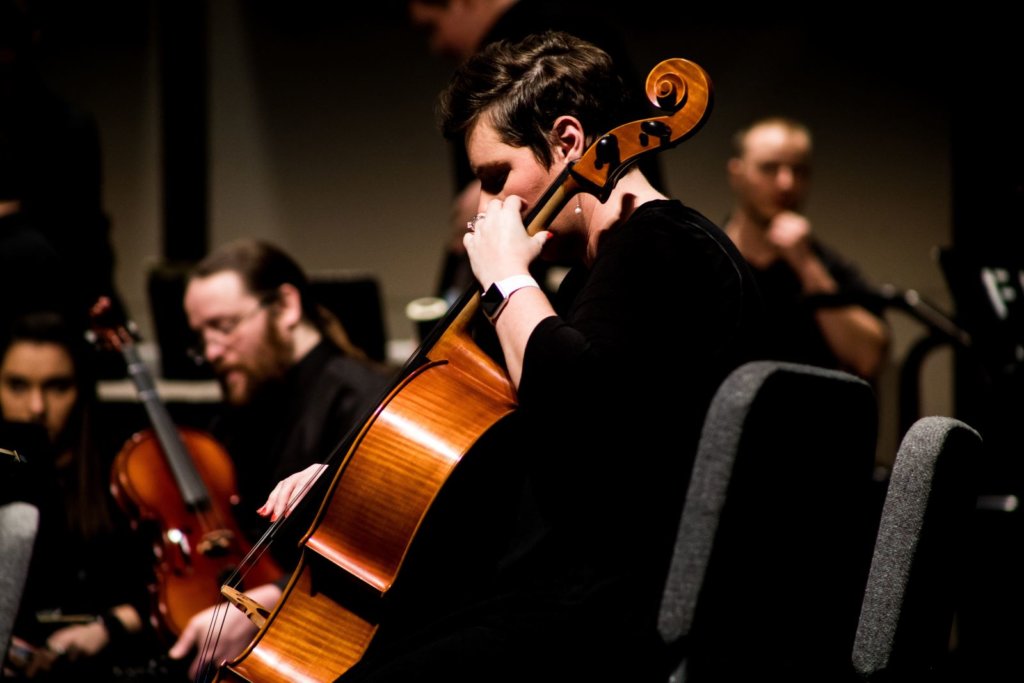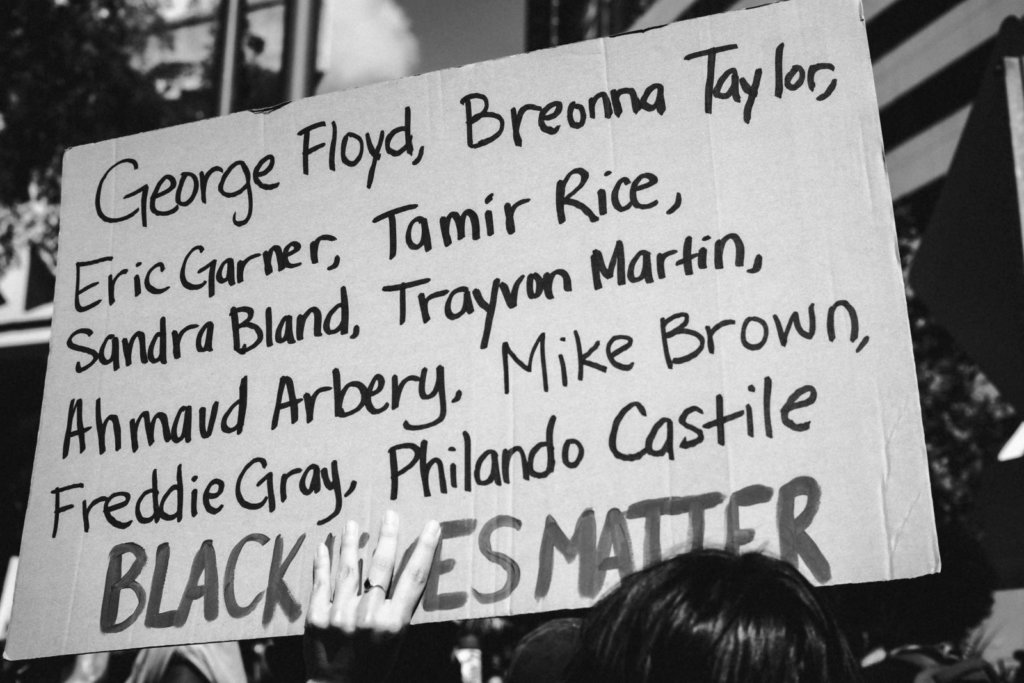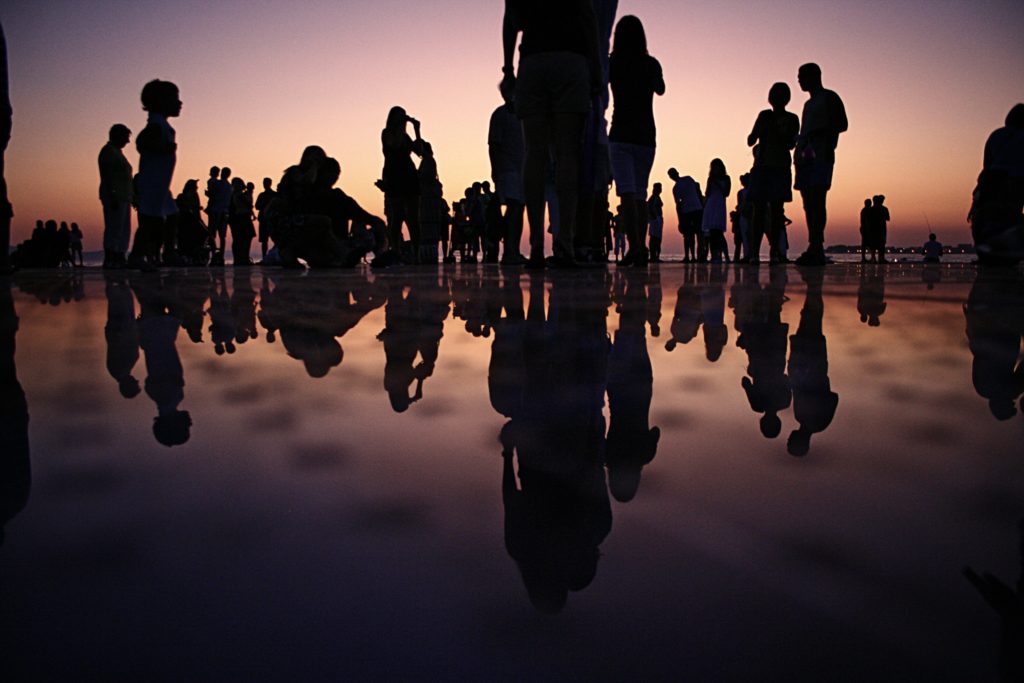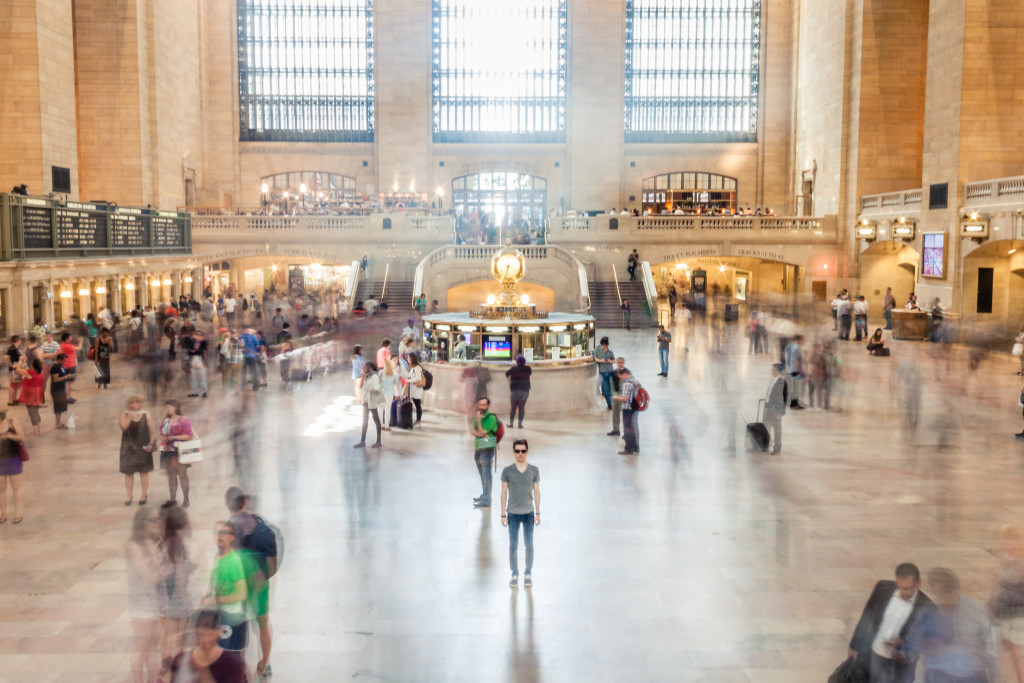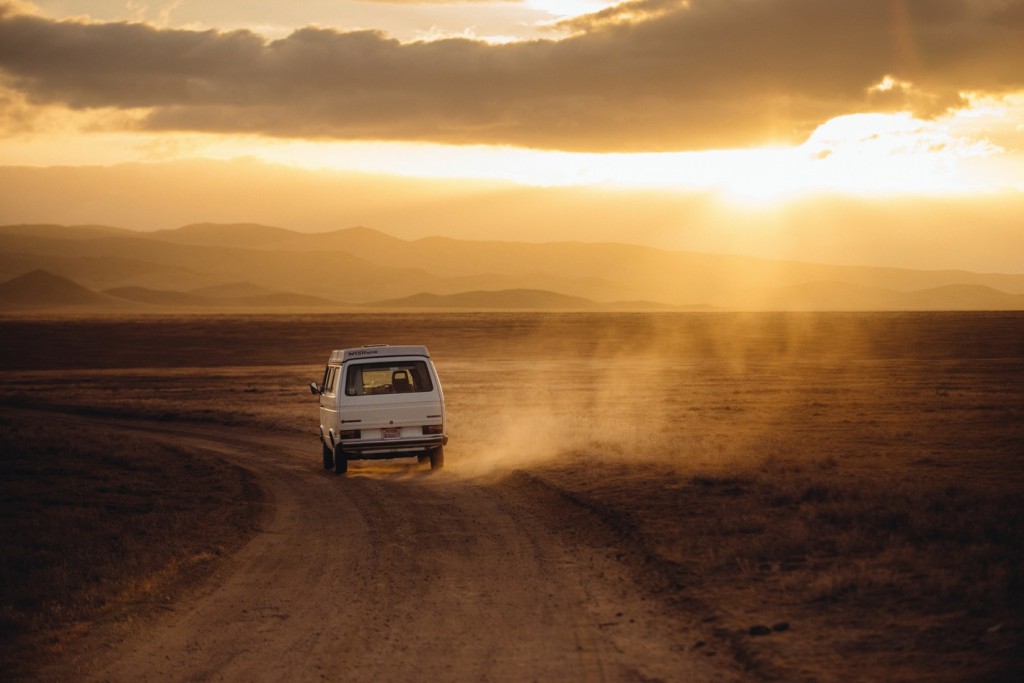The other week I saw a comment on a friend’s Facebook post that said certain people in the U.S. have a victim mentality and there are plenty of opportunities and resources to get ahead if they wanted. The comment has stuck with me like a burr in wool. I went to reply to the post and of course now I can’t find it so instead I’m writing a blogpost about it.
There’s a difference between a victim mentality and actually being a victim. For instance, in Pennsylvania, two separate studies found holding poverty as a constant, the Whiter the school district, the higher the funding. On average, the Whitest districts received thousands of dollars more than their fair share for each student, while the least White districts received thousands less for each student. Is that a “victim mentality” or actually being a victim?
In another example, four mothers are suing Jackson, Mississippi, because the school their kids attended lacked textbooks, basic supplies, experienced teachers, tutoring programs, after-school literary programs, and even toilet paper! Would you tell those children they should pull themselves up by their bootstraps and work even harder? Or maybe you’d advise a different approach and say those parents should have transferred their kids to another school, to do whatever it takes to give their kids a good education. A better question I think is why should the parents have to transfer their kids? What ever happened to the promise made to us by the state to provide a uniform system of free public schools?
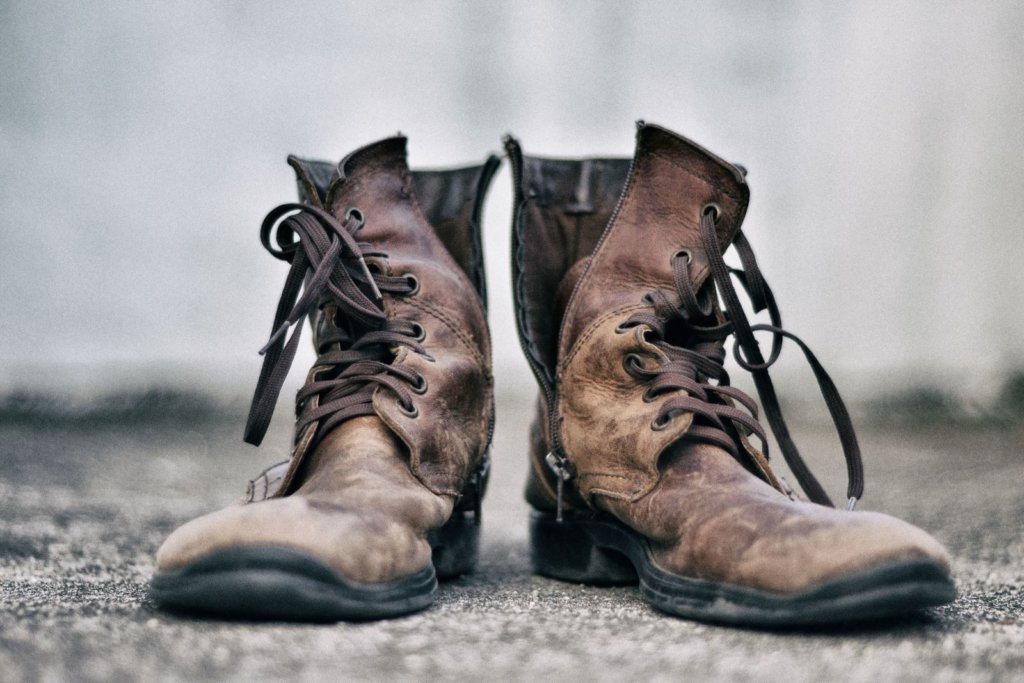
This picture makes sense if you think about the title of this post. Photo by Oziel Gómez on Unsplash
At this point some people may start talking about Darwin and survival of the fittest. How we’re playing out something inherent to human beings and our evolution. “Survival of the fittest” is an outdated idea that’s used to support callousness. The reality is we don’t live in a society where survival of the fittest operates. We have healthcare, we put curb cuts onto sidewalks to allow for wheelchair users and strollers, we have unemployment assistance. For the roughly 30 million Americans who are unemployed are we saying too bad, so sad but figure it out on your own? No. Because human beings are more compassionate than they are callous. We are more cooperative than competitive.
In fact, in 1965 when six Tongan boys were shipwrecked for 15 months they didn’t reenact Lord of the Flies – they worked together to help each other survive. That’s what human beings do. My spiritual teacher takes it a step further and says it’s our responsibility to take care of one another.
“You should always be vigilant that not a single individual of our collective body is in the least neglected or ignored,” he said. “Let not a single boy or girl feel within them that no one is concerned about them – let not a single person be allowed to think, ‘No one cares whether I have taken food or not.’ You must pay special heed to this. Particularly those of you who are in responsible positions of leadership should remember that … [Y]ou should always be concerned with others necessities, not your own. You should always think more about your duties and responsibilities than about your rights.”
Those are some strong words. I think there’s a balance because living in the society that we do, not everyone has this service mindset so it is important that I think of my own necessities otherwise I could go hungry. However, can you imagine what life would be like if we lived this way? If we felt responsible for other people in a non-codependent way? Sounds idyllic to me and exactly the sort of world I want to live in.
I dream of a world where we are concerned with others, not only ourselves. A world where every person feels cared for. A world where we feel responsible for each other. A world where every person is allowed to thrive because the collective supports them in doing so.
Another world is not only possible, it’s probable.
I have a tendency to idealize people, especially leaders. Not government officials because their peccadilloes are well documented, but other leaders like Gandhi and Dr. Martin Luther King, Jr. However, everyone has their flaws. Gandhi was a racist and had some weird, perhaps even abusive, sexual behaviors. Dr. King cheated on his wife. Did both of these men contribute to society and deserve recognition for that? Absolutely. But were they perfect? No.
That’s quite common actually for revolutionaries. I’m going to quote Rutger Bregman from a super-long article in The Correspondent. He read a book by British journalist Helen Lewis called Difficult Women that chronicles the history of feminism in Great Britain. In the book she makes the point many revolutionaries are difficult. Progress tends to start with people who are obstinate, obnoxious, and deliberately rock the boat. Also, doing good work in the world doesn’t mean a person is perfect.
Bregman writes: “Lewis’s criticism is that many activists appear to ignore this complexity, and that makes them markedly less effective. Look at Twitter, which is rife with people who seem more interested in judging other tweeters. Yesterday’s hero is toppled tomorrow at the first awkward remark or stain of controversy.”
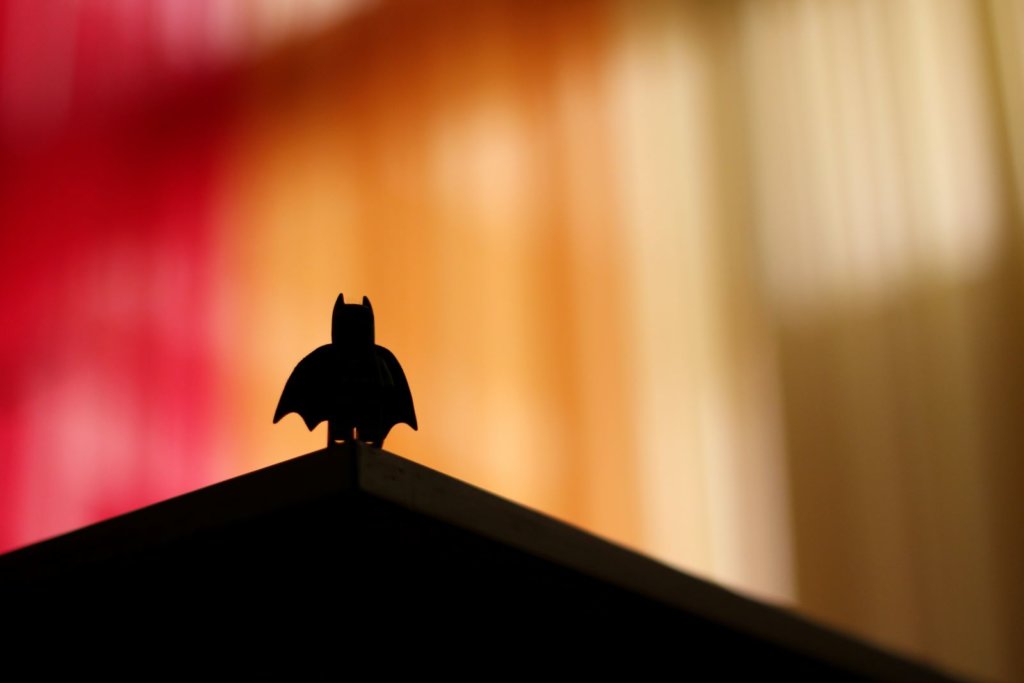
I know it’s a little silly to use a Batman figurine to illustrate this post, but Batman is a human and he’s a hero so. . . Photo by Ali Kokab on Unsplash
I’m reminded you don’t have to be perfect to make great change in the world and in fact, I take heart in that regular people with passion do that all the time. As we’ve recently celebrated Pride, I’d like to mention one such person: Marsha P. Johnson, a Black trans woman, who played a key role in the fight for LGBTQ equality. Three passionate Black women making a difference today are the co-founders of Black Lives Matter: Patrisse Khan-Cullors, Alicia Garza, and Opal Tometi.
You obviously don’t have to be a saint to be a leader, to be a spiritual revolutionary. My teacher says true leaders or spiritual revolutionaries work to achieve progressive changes for human elevation on a well-thought, pre-planned basis, whether in the physical, metaphysical, or spiritual sphere and they follow an ethical code. That ethical code includes things like not intentionally harming others, practicing benevolent truthfulness, not stealing, sacrificing to serve others, etc.
Today I am reminded that you and I can also be leaders in our own right, in our own way. If we are working to elevate humanity and doing our best to be ethical people, we fall into that category. We may never have the notoriety of any of the leaders I mention in this post, but we’re still leaders and the work we’re doing still matters. We need different people playing different roles to create change.
I’m going to end with another quote by Bregman here. He says:
“Our inclination – in talk shows and around dinner tables – is to choose our favorite kind of activism: We give Greta Thunberg a big thumbs up but fume at the road blockades staged by Extinction Rebellion. Or we admire the protesters of Occupy Wall Street but scorn the lobbyists who set out for Davos.
“That’s not how change works. All of these people have roles to play. Both the professor and the anarchist. The networker and the agitator. The provocateur and the peacemaker. The people who write in academic jargon and those who translate it for a wider audience. The people who lobby behind the scenes and those who are dragged away by the riot police.”
I dream of a world where we all work together to make a better society. A world where we recognize we all have the capacity to be leaders. A world where we remember we don’t have to be perfect to make a difference. A world where we see ourselves for the heroes we are.
Another world is not only possible, it’s probable.
While watching a movie that addressed publishing the Pentagon Papers, what struck me the most is multiple presidential administrations maintained U.S. involvement in Vietnam because they didn’t want other countries to lose respect for us. Setting aside how screwed up that is, I can’t think of a single country that still has respect for the U.S. OK, maybe Brazil, which also has a fascist leader, but otherwise the pickings are slim. These days Trump doesn’t seem to care one iota what other countries think of the U.S. and instead only cares about appealing to his base: primarily white, Christian men who are racist.
I want to address that term, racist. Robin DiAngelo, author of White Fragility, said, “We have to stop thinking about racism simply as someone who says the N-word.” Meaning it’s possible some Trump supporters (but not only his supporters) are racist but think they aren’t because they don’t use the N-word or they have friends who are people of color. Racism is a system that benefits white people – it’s prejudice plus power. And white people who want to maintain the status quo are supporting racism.
Trump does not fall into the camp of someone who is unaware he’s racist; he’s blatantly so. One only has to look most recently at his decision to hold the now-moved rally in Tulsa on Juneteenth as evidence of that. If you don’t know, Tulsa is the site of one of the worst incidents of racial violence in the nation’s history. In 1921, hundreds of black people were attacked by a white mob that looted and burned many black-owned businesses and homes in the Greenwood District, a neighborhood that was then known as “Black Wall Street.”
Trump’s racism is calculated and it’s precisely why he’s in power. Back in 2017, the Atlantic published an excellent essay by Ta-Nehisi Coates, an excerpt from his book We Were Eight Years in Power. Coates said, “In recent times, whiteness as an overt political tactic has been restrained by a kind of cordiality that held its overt invocation would scare off ‘moderate’ whites. This has proved to be only half true at best. Trump’s legacy will be exposing the patina of decency for what it is and revealing just how much a demagogue can get away with.”
Coates said Donald Trump is the first white president because he “moved racism from the euphemistic and plausibly deniable to the overt and freely claimed.”
It was true in 2017 and it’s still true now. How much can a racist demagogue get away with? Especially when he’s no longer pretending to be a decent man, to care about what other people or other countries think of him? The answer as we’ve seen is quite a lot.
A part of me wants to fast forward to 2021 when I sincerely hope Donald Trump is out of office, but the reality is, what Trump embodies doesn’t go away with a new president. He’s merely a symbol of what’s been here all along. It’s up to us to create a more just society and also to remind elected officials they work for us and not the other way around.
I’m heartened by the current protests because that dynamic is playing out. When the Minneapolis City Council unanimously passed a resolution to replace the police department with a community-led public safety system, it was a signal that public outrage can make a difference.
There is power in the collective, both good and bad. We can either use our collective power to maintain the status quo, to support inequality of all kinds, or we can do something different. We can band together to create a world we’d like to see. I, of course, want that better world.
I dream of a world where we use our collective power to remind the government they work for us. A world where we dismantle racism as well as all other -isms. A world where we win back the respect of other countries because we’re operating with respect. A world where power returns to the hands of the collective, where it belongs.
Another world is not only possible, it’s probable.
I have only told this story to a handful of people but now seems like the right time to share it more broadly. A few weeks ago I wrote a post about being the kind of people we want others to be. I mentioned the peace prayer, which is often mistakenly called the St. Francis prayer. I linked to a couple of stories of ex-KKK members who changed their ways based on relationships with people they used to hate.
After I wrote the post, I started to question the value of what I do, of how I help others. Does it really make a difference that I write a blogpost every week? Am I changing anyone’s life in a deep and profound way by leading a group meditation on Sundays? Would I make more of an impact by befriending someone who is in the KKK and supporting their exit from the Klan?
Literally within a few hours of thinking those thoughts I was zoombombed by neo-Nazis at the group meditation I lead. They started scribbling swastikas over my screen. They asked how many Jews we’ve killed and did whatever they could to disrupt the meeting before my co-moderator and I ejected them. (Since then we’ve tightened security measures at the meeting to keep incidents like that from happening again.)
After I calmed down, I started to laugh. It was as if the universe said to me, “Really? Are you sure you want to befriend neo-Nazis? Are you sure the form of service you provide isn’t worthwhile?” The universe answered my question very quickly and validated for me, yes, this is what my gifts are, and yes, they are needed.
I bring this up because I’ve had conversations with several people – both white and black – who have lots of feelings about not being on the streets protesting the treatment of black and brown people. There’s a feeling they “should” be and maybe some guilt that they aren’t. I get it because I feel that way too. I want to support black, brown, and indigenous people. I want them to know I’m not OK with how they are treated and protesting is one way to demonstrate that. However, my nervous system cannot handle large crowds. I start to panic when I’m in large groups which is why I never attend concerts or sports games at large stadiums. Even going to a shopping mall wipes me out.
Yesterday I went to a small protest near my house but there is no way I can be in a throng of people. When I think about my zoombombing experience, I realize that’s OK. Everyone has different gifts and different abilities. We are all special in our own way and however we’re choosing to show up in the world is valid. A symphony orchestra requires numerous instruments to create beautiful music. Humanity is like that symphony – we can’t all be the cello.
In fact, my spiritual teacher says, “[D]iversity is the order of providence. One must remember that identicality is disowned by nature – nature will not support identicality … diversity is the law of nature and identicality can never be. But diversity is not the same as disparity. Disparity encourages exploitation based on differences, while diversity recognizes multiplicity which reflects underlying unity.”
I dream of a world where we recognize we’re not meant to all do the same thing. A world where we realize we are like the instruments of a symphony orchestra – each part is important, beautiful, and adds to the whole. A world where we cherish how we personally contribute to society. A world where we recognize we are made to be different.
Another world is not only possible, it’s probable.
You know the saying, “History doesn’t repeat itself but it often rhymes”? I’m finding that to be true. We’re currently rhyming not only with the 1960s, but also the 1860s. That may sound strange for me to say. How is what the U.S. is going through now anything like the Civil War era?
I’d say we’re already engaged in another civil war, albeit nontraditionally. We don’t have troops marching against one another, but we’re already seeing a fight pitting brother against brother, sister against sister, and sibling against sibling for people who identify as nonbinary. We’re fighting online, in homes, on the streets. We’re fighting with words, and actions, and yes, also guns.
This civil war, like all civil wars, is a battle between the oppressed and the oppressor. For this civil war though, there are no discernible uniforms. It’s harder to identify who’s on what side. Amy Cooper, the woman who called the cops on Christian Cooper in New York City, identifies as a liberal. At least it seems that way given her campaign contributions. It’s not so easy to say Democrats are social justice warriors and Republicans only care about themselves. It’s also not so easy to say if you’re a person of color you’re automatically fighting for justice because one only has to look at the discriminatory policies Ben Carson supports in order to see that’s not true.
A key difference with this civil war though? There is no “North” to escape to. There is no place in the U.S. where people of color have true freedom. George Floyd was killed in Minnesota. So was Philando Castile. “Barbecue Becky” called police on black men barbecuing in my own state of California. These days we’re fighting for a metaphorical North. I say “we” because even though I’m not a person of color, I still have a stake in the game.
The Reverend Dr. Martin Luther King Jr. famously said, “No one is free until we’re all free.” I agree. My freedom, my ability to thrive in this world, is dependent on others being able to do the same. It’s part of why I mentioned in my last post that collective welfare is more important than individual welfare. We can relate that to this ongoing pandemic: If I contract COVID-19, I can spread it to other people. Your health is dependent on my health. That’s why we’re staying at home right now.
If you want another example, when more women work, economies grow, according to the United Nations. If female employment rates in more countries matched that of Sweden, it could boost gross domestic product by more than $6 trillion, the UN said. However, gender gaps cost the economy 15% of gross domestic product.
What would the world look like if people of color were allowed to thrive? What kind of contributions would they be able to make if they didn’t have to work so darn hard just to live? If they didn’t have to be in fear all the time? If they could operate in the world like, well, the average white person?
That’s the world I’m not only dreaming of, but fighting for. I’m not on the streets because my nervous system can’t handle it, but I’m contributing when, where, and how I can. And until that world exists, I’ll continue to fight for it and also dream of it.
I dream of a world where everyone is allowed to thrive no matter their race, ethnicity, gender, sexual orientation, or religion. A world where people can express the fullest, truest versions of themselves without fear. A world where we stand up for one another knowing we’re all interconnected.
Another world is not only possible, it’s probable.
Fyi, this is also a podcast.
The other day I entered into a discussion with a facebook friend about “Black Lives Matter” and “All lives matter.” His point was that all lives matter and that we should focus on unity, not division. He then proceeded to quote our spiritual teacher who said, “There is only one race in the entire world, and the name of that race is the human race. We are bound together with the same breast milk of mother Earth, and the same sun and moon are our common companions.”
I get where he and others are coming from. We all have the same needs. We all want respect, we all want to be valued. I think most of us are saying in one form or another, “What about me?” so when one group is highlighted or given more attention, the reaction of others is to say, “Yeah, but what about me?” I understand. But my question for the people who are chanting, “Unity, unity,” is how exactly do you propose we become unified? How exactly would you like us to become one human race?
I think of unity like a marriage. When both people are committed to working on themselves, to treating each other well, the marriage is great. However, when one person is abusing the other, it’s not so great. It seems to me the people advocating for unity are requesting minorities stay in a loveless, abusive marriage. I understand vows were made, but how is staying married helping anybody? Just because you’re committed to each other doesn’t mean the abuse will stop. The abuse only stops when one person says, “Enough. No more.” That to me is what’s happening with “Black Lives Matter.” Black people in this country are finally saying, “Enough. No more.”
A recent article in the Washington Post by Stacey Patton sums this up nicely. Patton said:
“Talk of unity, reconciliation, and restoring trust is a diversion from the raw, ugly, excruciatingly painful work of addressing the systemic racism that is tearing our nation apart. In their rush to avoid the real work in favor of a kumbaya fantasy comfort zone, they refuse to confront history and the truth about the present moment.
[W]hat the message of unity winds up doing is blaming communities of color for failing to assimilate, rather than acknowledging that the very fabric of this nation is built upon a diabolical, calculated, and constantly evolving system of racism.”
Far from leading to a divisive, destructive place, I see rooting out racism as the first step toward real unity. Toward identifying with only one race: the human race. I thought about citing statistics of how black people are unfairly targeted as evidence of the abuse taking place, but from my perspective it’s unnecessary because what the Black Lives Matter people are advocating will help us all, no matter what color we are. Asking for more accountability and transparency from the police can only benefit all of us. Yeah, it may be seemingly divisive right now to focus on black people but I think it’s more important to look at the big picture. Where are we heading? What is this leading toward? From my perspective, it’s leading toward one human society where we can say, “All lives matter,” and it rings true not only in rhetoric but in practice.
I dream of a world where we ferret out problems so that we may solve them. A world where we understand sometimes we have to focus on one group at a time in order to benefit us all. A world where we act as if there is only one race: the human race.
Another world is not only possible, it’s probable.
I’ve been distraught this week at the state of the world. That seems to be a common theme lately, but this week felt especially intense. I didn’t watch the videos of Alton Sterling or Philando Castile because I am far too sensitive for that, but even hearing details I sunk into a depression. I started feeling helpless and hopeless.
Instead of living in those states, I reached out to my community and asked about service projects. When the world gets like this, I think it’s important to contribute in any way we can as opposed to shaking our heads and saying, “Isn’t that awful?”
It’s easy to do – to feel something and then continue with the status quo. After all, bills need to be paid. It’s easy to fall into the mindset of, at the very end of the day, if I have any energy left over, then I might help other people.
Friends, this is no way to live and does not lead to any sort of fulfillment. My spiritual teacher says the formula for bliss is service minus information. I have been decidedly low on service and high on information, so of course I’m not feeling bliss, besides the fact there are some pretty terrible things going on in the world.
Service often gets relegated to that one weekend of the month volunteering for so-and-so, and that’s fine because it’s something. At this point, something is better than nothing. It’s excruciating for me to sit on my laurels watching what’s going on around me; I can’t do that. I’m not a person who can tolerate crowds so no, I will not be at any protests unless I get a nudge from my higher power, but it’s important for all of us to keep making the world a better place, whether that’s through after-school tutoring or leading a men’s group or planting a community garden. It may not be directly related to the Black Lives Matter movement, but that’s OK, because in my book, any sort of service leads in the direction we all want to go.
I didn’t sleep well last night so this post might be all over the place, but what I’m advocating is: beware of the cushy life. The life where it’s all about being as comfortable as possible. A life that puts us at the center of existence without thinking of others. A world where we may feel something but then carry on as if nothing has changed. I’m asking that our feelings get translated into action, into service, into helping our brothers and sisters in any way we can.
I dream of a world where we serve each other. A world where we take action to make the world a better place instead of lamenting how awful it is. A world where instead of striving for a cushy life, we strive for a blissful one.
Another world is not only possible, it’s probable.
Last week, I watched an inspirational movie about kids who utilized their talents to win scholarships to college and pull themselves out of poverty. All of the kids were the first in their families to go to college, and by doing so they become teachers, writers, policemen, etc. They weren’t forced to work in low-wage jobs like their parents were.
I teared up watching the flick – I love that they improved their lives – but then I got to thinking, “What about everyone else?” What about the kids who don’t have an exceptional talent that wins them a scholarship? These kids escaped the cycle of poverty, but someone else is waiting in the wings to take their place. Just because one person no longer has to pick oranges for a living doesn’t mean oranges stop getting picked. It doesn’t mean all the other orange pickers no longer have to endure poor working conditions and low wages.
The cycle of exploitation continues and our capitalistic economy feeds off it. In the case of food production, almost literally. Why is this? Because we continue to emphasis the rights of individuals (or corporations, who are now considered people) over the collective.
I’ve seen the individual versus the collective show up in a big way this week with the killing of Cecil the Lion. Minnesotan dentist Walter Palmer paid $50,000 to hunt Cecil the Lion, who was a big tourist attraction in Zimbabwe. Did Palmer think about anyone other than himself when he set out to kill Cecil? No he did not. He was prioritizing his own selfish interests.
Another way that the individual versus the collective is prioritized is the public’s reaction to the killing of Cecil. We’re directing so much ire against Palmer, but not talking as much about poaching laws in general. Outrage has reached such a fever pitch that Zimbabwe is calling for Palmer’s extradition and many people in the U.S. agree. I think part of the reason we’re seeing so much outrage over Cecil is it’s easy to excoriate an individual.
A few of my friends who are more focused on the collective have exclaimed they wish society would be as outraged over the killing of black people in our country as people are over the killing of Cecil. It’s harder to evoke as much outrage against a system, which is also harder to dismantle, than it is to get pissed off an at individual. Racism is so rampant, it’s seeped into many aspects of life, and how do you go about changing something like that?
I think it starts with prioritizing the collective. There is an African proverb that says, “If you want to go fast, go alone. If you want to go far, go together.” We are not going to go far if we keep focusing on ourselves alone. We are not going to solve any of our serious societal problems if we’re thinking, “How can I benefit?” instead of “How can we benefit?” Life can be better for all of us but that starts with striking a balance between the individual and the collective.
My spiritual teacher says, “One must not forget that collective welfare lies in individuals and individual welfare lies in collectivity. Without ensuring individual comforts through the proper provision of food, light, air, accommodation, and medical treatment, the welfare of the collective body can never be achieved. One will have to promote individual welfare motivated by the spirit of promoting collective welfare.”
I dream of a world where we go far, together. A world where we prioritize taking care of each other. A world where we understand what’s good for the collective is also good for the individual. A world where we work to raise each other up, and improve life for us all, because after all, you plus me equals we.
Another world is not only possible, it’s probable.
My mother recorded the audio for this post because I’m sick. =(
I have a tendency to focus on the future. And I mean more than being goal-oriented. I view the future as a tantalizing prospect and look forward to it with giddy anticipation. When I think of the future, it’s always as an absolute, not a possibility. I think of the future as a book that’s already written just waiting for me to read. Except, that’s not true. The future is more like a “choose your own adventure story.”
I think I’ve already mentioned how I’ve yet to meet a psychic who can accurately predict my future. I was reminded of that yet again recently. I visited a city that she said would be great for me, where she thought I’d really flourish. It’s been a question in my mind ever since she suggested it two years ago. I visited the city and felt . . . nothing. I didn’t feel a hum of excitement or awe or frisson. Mostly I felt bored and uninspired.
My dad keeps saying to me there’s no way you can tell whether you’ll like living somewhere after only a weekend, but I think he’s wrong. I think you can tell almost immediately because you’re picking up on something – a vibration, an energy, something that notifies you whether a place is yours or not. After coming back from this trip I felt elated, not because I enjoyed the city, but because I finally felt that the world is my oyster.
I’ve honestly believed my life had a certain trajectory; that the future was decided, but after going on this trip I realized it’s not. The future is a series of possibilities, of adventures that I get to choose. All of my actions will have reactions – that’s a law of nature – but the actions I take now affect my future. The future is not something to live into, it’s something I’m creating with each and every moment with all the decisions I’m making right this instant.
I’m terribly excited by this realization because it relates to the #blacklivesmatter movement. For the past couple of weeks I’ve been despondent thinking about race in the U.S. and how people of color are treated. It seems inevitable that injustice will continue and that whatever will happen will happen. But when I realize the future is not decided, that we’re co-creating the future, we can establish a new way of being, of living, of treating each other.
In physics, if a ball is on a certain track, the slightest bump can cause the ball to veer off course. In the beginning, the change will be miniscule, but eventually, the difference between where the ball could have gone and where it ends up will be vast. That means the tiniest actions on our part could greatly affect the future. That to me means I can forget about the future because it’s the present that really matters.
I dream of a world where we understand the future is wide open with possibilities. A world where we know anything can happen. A world where we take the steps now for a future we’d like to create. A world where we understand even the slightest change can make the biggest difference.
Another world is not only possible, it’s probable.
